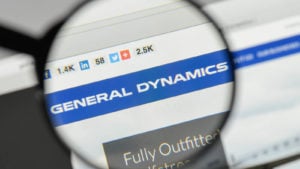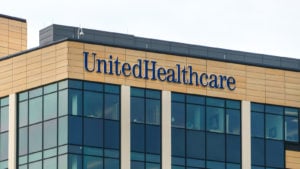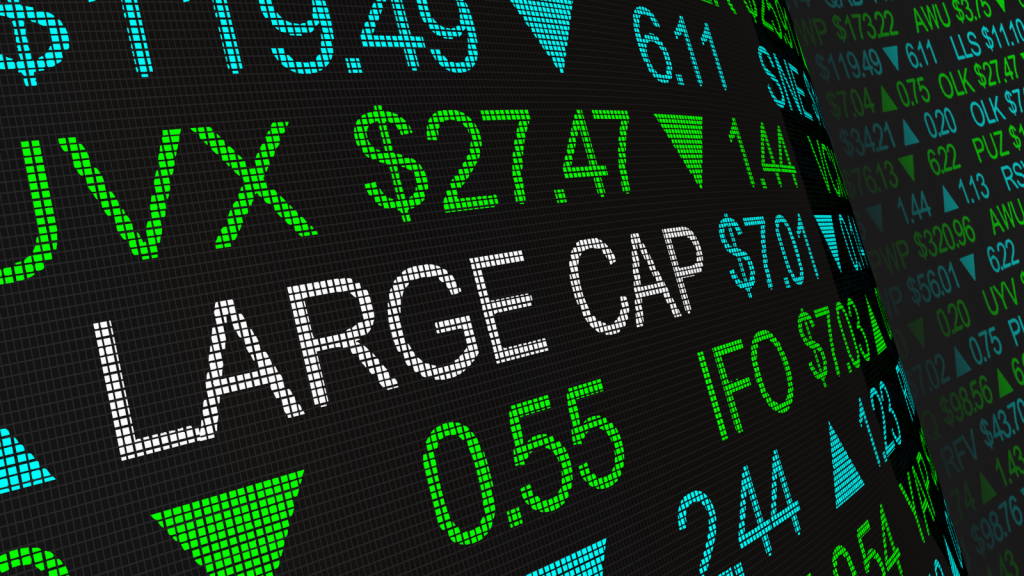Top-rated large-cap stocks can offer a bit of security in volatile times.
After the relief rally earlier this month, stocks may be in for another bout of weakness. Uncertainties like inflation, rising interest rates and a potential recession have still yet to be fully absorbed by the market. That may be a discouraging prospect for anyone looking for short-term opportunities.
But if you invest in top-rated large-cap stocks with a long time horizon, further market volatility may work in your favor. Just as a bull market typically pushes both high-quality and low-quality stocks to higher prices, the opposite is true for a market downturn.
While pushing down more speculative plays to prices more reflective of their fundamentals, the market can also push top-rated large-cap stocks to very favorable price points for “buy and hold” investors.
That’s the case here with the seven top-rated large-cap stocks listed below. Each one earns either an “A” or “B” rating in my Portfolio Grader. Consider entering/add to positions in them, as choppy waters remain for the market.
| ABBV | AbbVie | $140.34 |
| ELV | Elevance Health | $507.00 |
| GD | General Dynamics | $234.49 |
| KO | Coca-Cola | $64.20 |
| TSLA | Tesla | $869.74 |
| UNH | UnitedHealth Group | $544.57 |
| XOM | ExxonMobil | $94.01 |
AbbVie (ABBV)

As a major pharmaceutical company, AbbVie (NYSE:ABBV) is a great recession-resistant stock to include in any portfolio. A downturn could dampen demand for many sectors, yet people need healthcare, even in a recession.
That said, I can see why there may be some reservations about buying ABBV stock today. Between losing exclusivity for its Humira rheumatoid arthritis drug and news of it paying more than $2 billion to resolve opioid litigation, it may seem as if it has too many headwinds right now.
However, one can argue that these past issues are more than priced in, given the stock’s current low valuation (forward earnings multiple of 10.2x).
Furthermore, as it diversifies its product portfolio, it may have a path to substantially higher prices. Along with this, AbbVie pays out a nice dividend (3.9% forward yield), with its payout growing by double-digits annually over the past five years.
This stock earns a “B” rating in my Portfolio Grader.
Elevance Health (ELV)

Formerly known as Anthem, Elevance Health (NYSE:ELV) is the largest for-profit company providing health insurance under the Blue Cross Blue Shield brand. All and all, it’s one of the top-rated large-cap stocks to make a long-term holding.
Although it’s still moving higher, as the market pulls back, ELV stock trades at a favorable valuation (17.5x earnings). It can easily sustain this earnings multiple, as it’s expected to continue growing its earnings per share (EPS) by around 12.8% next year, and by about 13.6% in 2024.
Elevance could continue to climb, in tandem with increased EPS. Its current forward yield of 1.02% may seem tiny, yet in time, it could grow to become mighty. Its low payout ratio (19.31%) leaves ample room for dividend growth. The company has raised its payout by an average of 13.14% over the past five years.
This stock earns an “A” rating in my Portfolio Grader.
General Dynamics (GD)

Like healthcare, defense is another sector that can hold up well during challenging economic conditions. General Dynamics (NYSE:GD) is a large, high-quality name in the space.
The company provides a wide range of hardware for the U.S. Military, from mortar munitions all the way down to nuclear-powered submarines.
Up by around 16.5% year-to-date, investors have already bought this defense stock as a defensive play. Geopolitical tensions have also played a big role in keeping GD stock in the green in 2022, while markets overall remain deeply in the red.
Even so, the ship hasn’t sailed when it comes to buying it. Alongside a sustainable valuation, General Dynamics also pays a 2.09% dividend. With 27 years of consecutive annual dividend growth, it’s firmly in the “dividend aristocrats” category. For both steady long-term price appreciation and yield, consider it a buy. Whether now, or on any weakness.
This stock earns a “B” rating in my Portfolio Grader.
Coca-Cola (KO)

When you think of blue-chip large-cap stocks, Coca-Cola (NYSE:KO) is certainly a name that first springs to mind. The venerable beverage company has been in business since 1886, has paid dividends since going public 100 years ago and has grown its dividend (current forward yield of 2.7%) 59 years in a row.
If you are a conservative investor, looking for steady returns, largely through dividends, you can’t go wrong adding a name like KO stock to your portfolio. Having said that, you may have concerns about its current valuation. Shares today trade for around 26.5x estimated 2022 earnings.
But while its valuation could impact future upside, its current multiple can be viewed as reasonable. Given its high quality, a premium valuation is befitting. Even if you decide to skip it now, keep it on your watchlist. Another market pullback could enable you to pick it up on sale.
This stock earns a “B” rating in my Portfolio Grader.
Tesla (TSLA)

After looking at several large-cap stocks best described as “blue chip” or defensive, let’s look at one of the top-rated large-cap stocks still in the high-growth fast lane.
At first, Tesla (NASDAQ:TSLA) may not seem like a great stock to own during market volatility. After all, hasn’t the bear market knocked down growth/tech plays like this electric vehicle (EV) maker?
Yes. TSLA stock has dropped around 25.8% since January. Yet while shares could keep struggling in the near term, that’s not to say the same will happen over the long term. Recession or not, the EV revolution isn’t going away.
In fact, recent changes to EV tax credits could boost demand from middle-class buyers. Add in the potential for global sales to re-accelerate, and its long-term growth prospects remain strong. As continued growth could help sustain (and grow) Tesla’s stock price, buying now (while growth remains out of favor) could be a profitable move.
This stock earns a “B” rating in my Portfolio Grader.
UnitedHealth Group (UNH)

This list of top-rated large-cap stocks may seem healthcare-heavy, but again this underscores how this is a great sector for long-term investors to focus on. UnitedHealth Group (NYSE:UNH) is the largest health insurance company in the United States.
With its consistent revenue and earnings growth, it is no surprise UNH stock has been a winner. Whether in the recent past (up 181.5% since 2017), or on a longer timeframe (more than 9x gain over the past decade). With a market cap above $500 billion, it may take far more than a decade for shares to soar another 9x.
Still, as a leader in its industry, poised to continue growing at an above-average pace, investors buying today stand to be more than satisfied by future returns. Paying up for quality now (shares trade for 25.1x earnings) could prove worth it.
This stock earns an “A” rating in my Portfolio Grader.
ExxonMobil (XOM)

With crude oil’s retreat back below $100 per barrel, the party may seem over for energy stocks like ExxonMobil (NYSE:XOM). Recently, shares in the integrated oil and gas firm have fallen back in line with oil’s slide.
Nevertheless, don’t view this as a sign that post-comeback, it’s middling returns from here for XOM stock. The U.S. Energy Information Administration (or EIA) still calls for crude oil to remain at or near current price levels (around $89 per barrel) through 2023.
Also, as I argued back in June, there are other factors in play that could move the needle for ExxonMobil shares. The company’s cost-cutting plans will give EPS a boost. Its aggressive repurchase of shares will also help to boost EPS, and in turn, its stock price. With a 3.74% forward dividend yield to boot, it’s still a great name to make a long-term position.
This stock earns an “A” rating in my Portfolio Grader.
On the date of publication, Louis Navellier had a long position in ABBV, GD, and UNH. Louis Navellier did not have (either directly or indirectly) any other positions in the securities mentioned in this article. InvestorPlace Research Staff member primarily responsible for this article did not hold (either directly or indirectly) any positions in the securities mentioned in this article.
